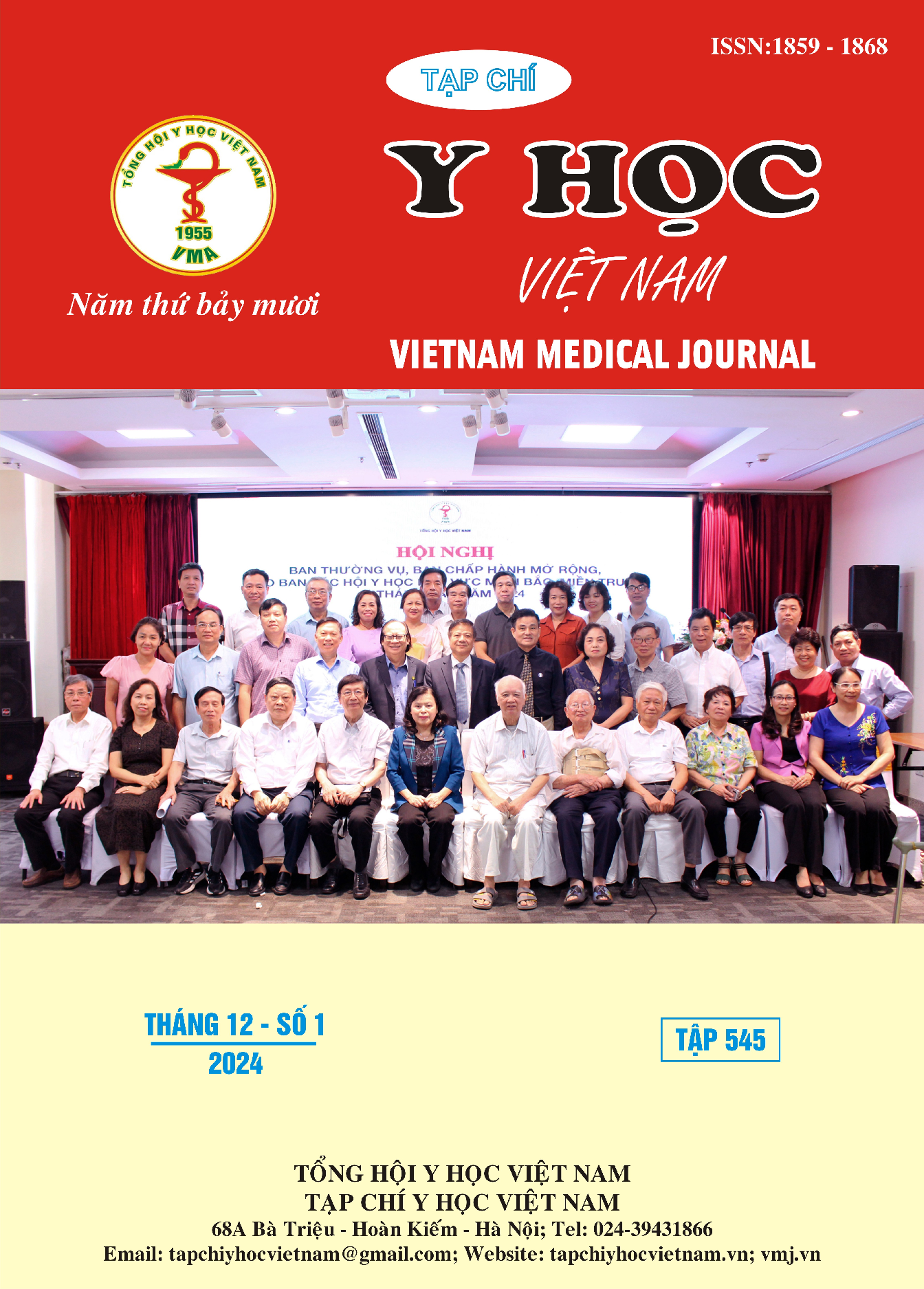SURVEY ON DRUG USE AMONG PATIENTS WITH TYPE 2 DIABETES AND CHRONIC KIDNEY DESEASE AT THE NATIONAL HOSPITAL OF ENDOCRINOLOGY
Main Article Content
Abstract
Background: Diabetes is a metabolic disorder, if not fully controlled, it will cause a lot of serious complications especially on the heart, kidneys, eyes and nerves, this is the leading cause of chronic kidney. The management of type 2 diabetes patients with chronic kidney diabetes faces many challenges such as choosing the right medication and dosege for the patient’s kidney function. Objectives: Survey on the drug use of blood sugar control and some complications in type 2 diabetes patients with chronic kidney desease at the National hospital of Endocrinology. Materials and methods: Retrospective descriptive study including 525 patients diagnosed with type 2 diabetes and chronic kidney disease at the National hospital of endocrinology from July 01st, 2024 to December 31st, 2024. Results: The average age of patients in the study was 69.1±8.6 years old; There are nearly twice as many males as females; Average blood glucose 7.80±2.80 mmol/L; Average HbA1c 7.62±1.34%; Most patients are in the moderate stage of CKD, accounting for 76.37%; Insulin is the most commonly prescribed drug group in all 3 stages of CKD; There were 13 cases of metformin prescriptions that were inappropriate for renal function; ACEI/ARB and statin groups are the two most prescribed blood pressure and lipid control drug groups (respectively 94.73% and 95.21%). Conclusion: The majority of patients in the study were in the intermediate stage of CKD, and insulin was the drug group prescribed in most patients. Metformin was prescribed in the highest number of prescriptions exceeding the recommended dose based on renal function. In addition, hypertension and dyslipidemia were two comorbidities with high rates and were often prescribed by doctors with ACE inhibitors or angiotensin receptor blockers and statins
Article Details
Keywords
Type 2 Diabetes, Chronic kidney desease
References
2. Giang, N.T.H (2018), Phân tích tình hình sử dụng thuốc và hiệu quả điều trị đái tháo đường type 2 trên bệnh nhân có bệnh lý bệnh thận mạn tại bệnh viện đa khoa Xanh Pôn, Trường Đại Học Dược Hà Nội.
3. Hoa, P.T (2019), Phân tích sử dụng thuốc điều trị rối loạn lipid máu trên bệnh nhân đái tháo đường type II tại khoa Khám bệnh Bệnh viện đa khoa tỉnh Bắc Ninh, Trường Đại học Dược Hà Nội.
4. Linh, N.T (2020), Khảo sát thực trạng kê đơn trên bệnh nhân đái tháo đường type 2 mắc kèm bệnh thận mạn được quản lý ngoại trú tại một số bệnh viện, Trường Đại học Dược Hà Nội.
5. ElSayed, N.A and cs. (2023), "10. Cardiovascular Disease and Risk Management: Standards of Care in Diabetes-2023". Diabetes Care. 46(1), tr. 158-190.
6. Federation ID. (2021), IDF Diabetes Atlas Brussel. Belgium [9th Edition]. (Ngày truy cập: 24.06.2024) https://www.diabetesatlas.org.
7. Members Authors/Task Force. (2019), E. S. C. Committee for Practice Guidelines và E. S. C. National Cardiac Societies. "2019 ESC/EAS guidelines for the management of dyslipidaemias: Lipid modification to reduce cardiovascular risk". Atherosclerosis. 290, tr. 140-205.
8. Park, J.E and cs. (2012), "Lipid-lowering treatment in hypercholesterolaemic patients: the CEPHEUS Pan-Asian survey". Eur J Prev Cardiol. 19(4), tr. 781-94.


